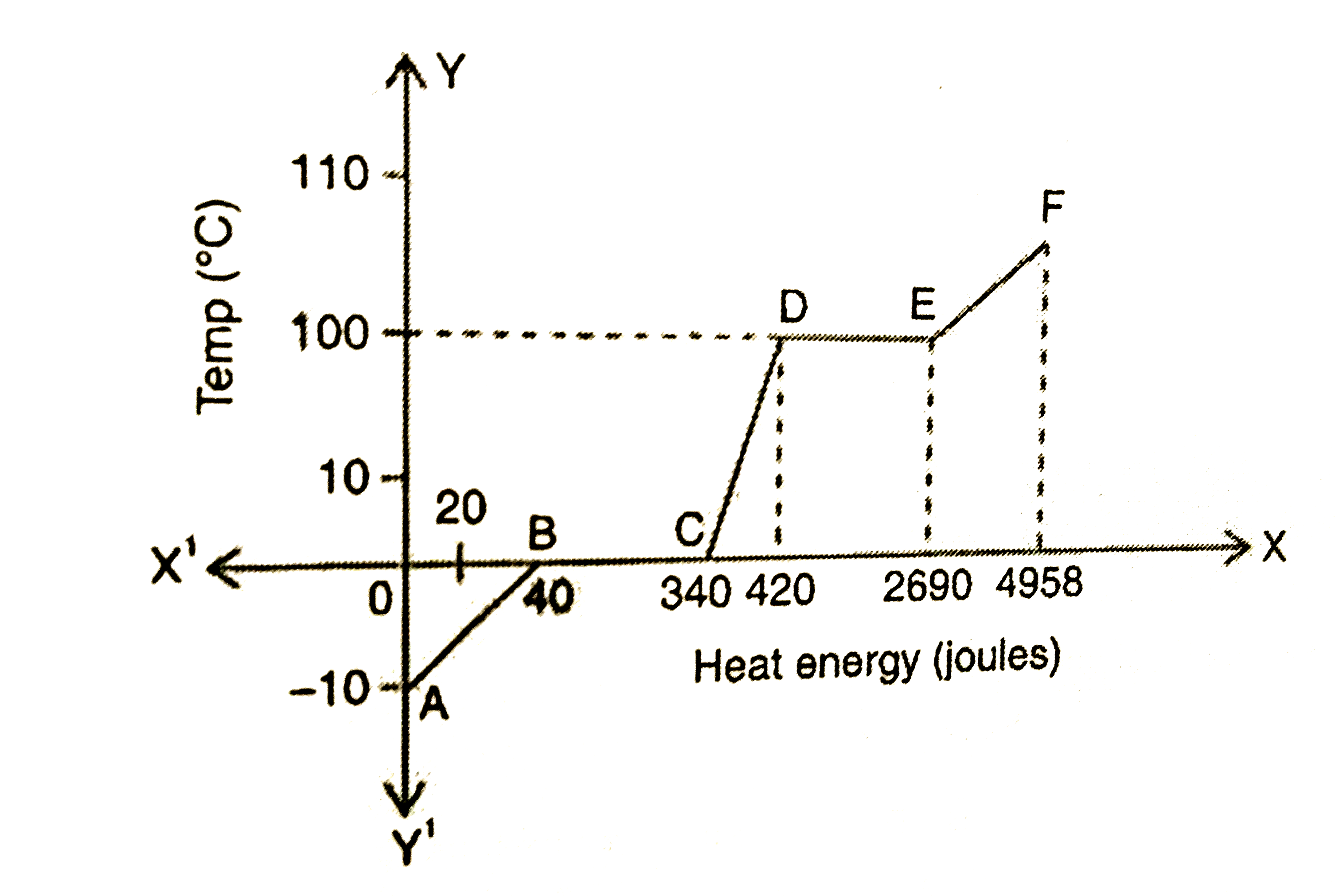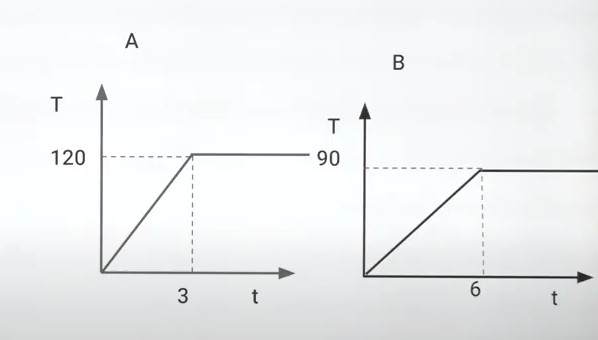The amount of heat energy Q, used to heat up a substance depends on its mass m its specific heat capacity (s) and the change in temperature of the substance. Using dimensional method, find the expression for s is ( Given that ) is
The correct Answer is:2
To find the expression for the specific heat capacity s using dimensional analysis, we start with the relationship given by the formula for heat energy:
Q=m⋅s⋅ΔT
Where:
- Q is the heat energy,
- m is the mass,
- s is the specific heat capacity,
- ΔT is the change in temperature.
Step 1: Write down the dimensions of each quantity
We know the following dimensions:
- The dimension of heat energy Q is given as (Q)=(L2T−2) (as energy has dimensions of work, which is force times distance).
- The dimension of mass m is (m)=(M).
- The dimension of change in temperature ΔT is (ΔT)=(K) (Kelvin).
Step 2: Set up the dimensional equation
From the equation Q=m⋅s⋅ΔT, we can express the dimensions as:
(L2T−2)=(M)⋅(s)⋅(K)
Step 3: Rearrange to find the dimension of specific heat capacity s
To isolate s, we rearrange the equation:
(s)=(L2T−2)(M)⋅(K)
Step 4: Substitute the dimensions into the equation
Now, substituting the dimensions we have:
(s)=(L2T−2)(M)⋅(K)=(L2M−1T−2K−1)
Conclusion
Thus, the expression for the specific heat capacity s in terms of its dimensions is:
(s)=(L2M−1T−2K−1)
- Q is the heat energy,
- m is the mass,
- s is the specific heat capacity,
- ΔT is the change in temperature.
We know the following dimensions:
- The dimension of heat energy Q is given as (Q)=(L2T−2) (as energy has dimensions of work, which is force times distance).
- The dimension of mass m is (m)=(M).
- The dimension of change in temperature ΔT is (ΔT)=(K) (Kelvin).
From the equation Q=m⋅s⋅ΔT, we can express the dimensions as:
To isolate s, we rearrange the equation:
Now, substituting the dimensions we have:
Thus, the expression for the specific heat capacity s in terms of its dimensions is:
Topper's Solved these Questions
- UNITS AND MEASUREMENTSBook:AAKASH INSTITUTEChapter:UNITS AND MEASUREMENTSExercise:ASSIGNMENT SECTION B Objective (One option is correct )
Explore 45 Videos
- UNITS AND MEASUREMENTSBook:AAKASH INSTITUTEChapter:UNITS AND MEASUREMENTSExercise:ASSIGNMENT SECTION C Objective (More than one option is correct )
Explore 10 Videos
- UNITS AND MEASUREMENTSBook:AAKASH INSTITUTEChapter:UNITS AND MEASUREMENTSExercise:Try Yourself
Explore 82 Videos
- THERMODYNAMICSBook:AAKASH INSTITUTEChapter:THERMODYNAMICSExercise:ASSIGNMENT (SECTION -D) (Assertion - Reason Type Questions)
Explore 10 Videos
- WAVE OPTICSBook:AAKASH INSTITUTEChapter:WAVE OPTICSExercise:Assignment (Section-J (Aakash Challengers question))
Explore 1 Video
Similar Questions
Knowledge Check
2000 J of energy is needed to heat 1 kg of paraffin through 2∘C, then its specific heat capacity is
A4000J/kg∘CB10,000J/kg∘CC40,000J/kg∘CD1000J/kg∘CThe amount of heat energy absorbed by the substance to change completely form liquid at its boiling point to gaseous state is ______J
 A4618B2270C4538D4958
A4618B2270C4538D4958The quantity of heat required to change the temperature of 1 kg of substance by 1∘––C in called its
ASpecific heatBthe total energyCthe latent -heatDheat of fusion
The amount of heat required to change the state of unit mass of a substance at constant temperature and pressure is called _______ of the substance. Its SI unit is __________ .
View SolutionThe heat capacity of 80 kg lead is found to be 11.2 kJ K−1. Find its specific heat capacity
View SolutionTemperature vs. time graphs are given below for 2 substances. Compare specific heat capacity

View SolutionThe amount of heat absorbed by a body while raising its temperature is given by the equation. Q=msθ , here Q is the amount of heat, m is the mass of the body, s is the specific heat capacity and θ is the rise tmemperature. Dertermine the S.I. unit and C.G.S. unit of heat and specific heat capacity
View SolutionSpecific heat is defined as the heat required to raise the temperature of 1 kg substance through 1 K. The unit of specific heat in S.I is
View Solution

